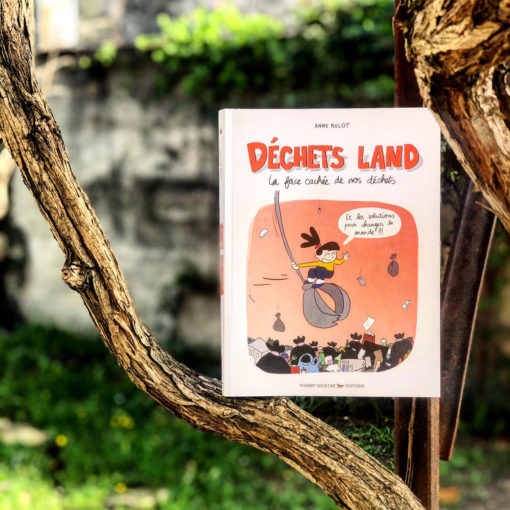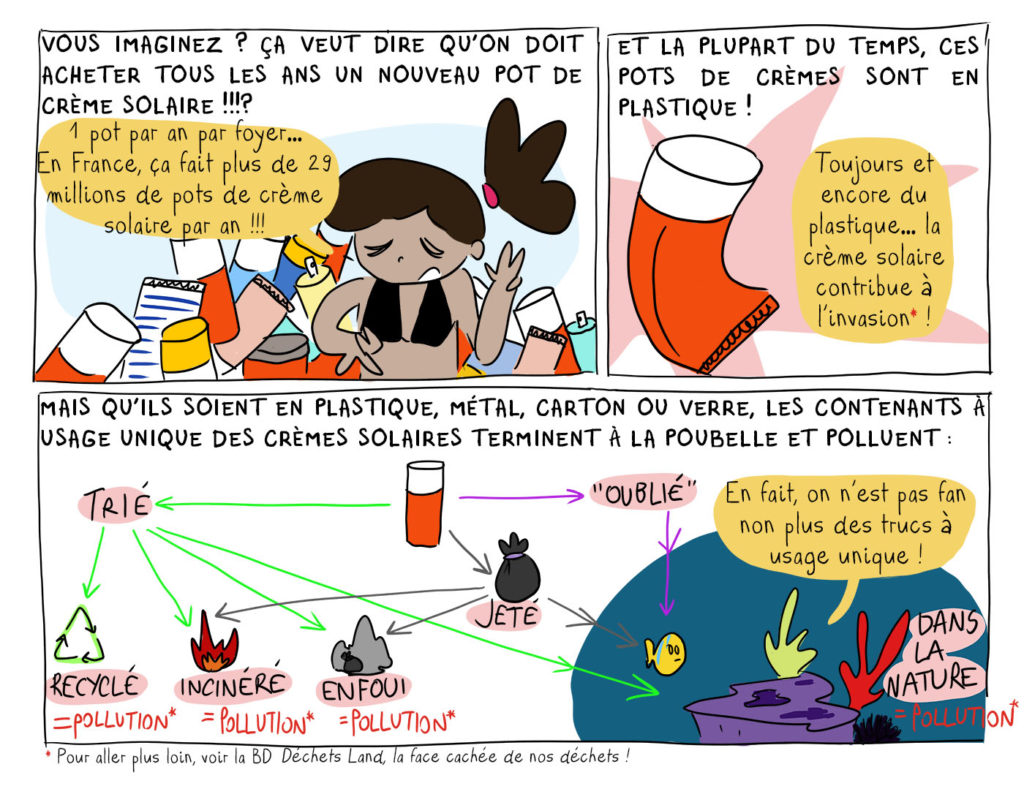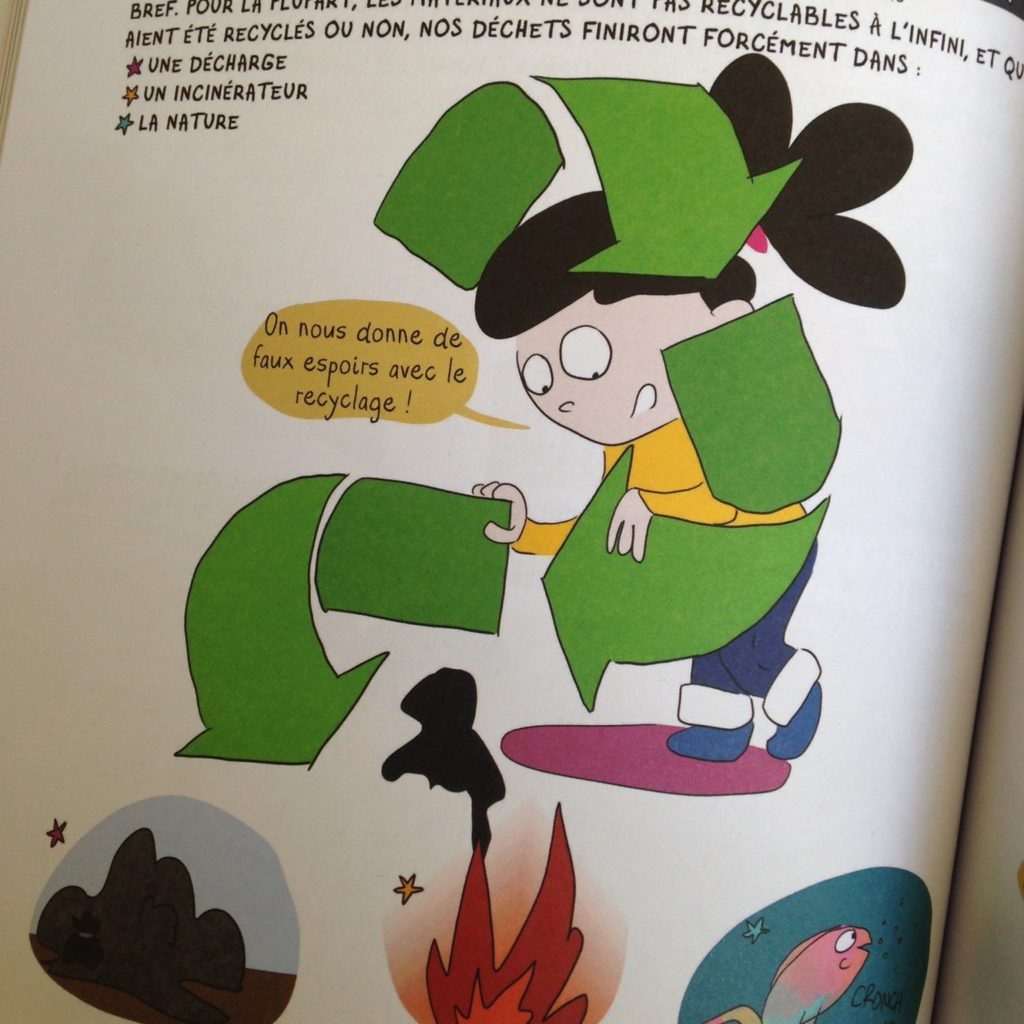
Waste reduction reaches the comic book panels – a look at Anne Belot’s Déchets Land
In the comic book Déchets Land, la face cachée de nos déchets, Anne Belot leads an investigation about waste, a topic the author handles with an element of humour. Where does waste end after it is discarded, is recycling the solution, who benefits from huge amounts of waste – and, most importantly, how can we reduce our waste?
An agronomy engineer by trade, Anne Belot has been engaged in sensitising people and companies firms to reduce their waste, and she created several associations and enterprises in Lyon, notably the Lyon Zero Waste Festival (FL0D).
“The hidden face of our waste” is not as bright as we imagine – it mostly ends in landfills or incinerators, both being huge sources of pollution for the environment, with devastating effects on our planet, health, and biodiversity.
The comic book provides an insight into how waste is not as recycled as we think or is falsely advertised, and recycling processes are far from being as efficient as they can be. The concept of recycling has become a somewhat well-maintained mirage, still being portrayed as the optimal solution by most, but the reality is much less straightforward. For waste to be recycled, it needs to first be produced using materials that are 100% recyclable, sorted out properly at home, and then processed through facilities that thoroughly extract all recyclable materials. An entire chapter of the comic book is about the issues and the lure of recycling. The book also exposes the business side, which perpetuates the current model of consumption.

As such, a large part of the book is devoted to alternatives. Still with humour, Anne explains how citizens and policymakers can get involved in waste reduction at the source, which contributes to making a zero-waste future possible. Many organisations around the globe, like Zero Waste France, in Anne’s home country, have proved that we can certainly do without landfills and incinerators, and better alternatives for all exist. For this, we must take measures adapted to each geographical context to redesign, reduce, reuse, promote composting solutions, and finance all reuse initiatives – and more generally, those that work for an ecological transition. While recycling will always be necessary, it should become the option of last resort, i.e. only unavoidable types of waste – rather than the current pattern of recycling unnecessary or single-use items that shouldn’t even exist.
Taking into account waste reduction at a personal level, the book presents some very accessible actions to get rid of all the superfluous items that surround and encumber us.
In addition to this, Déchets Land gives some insight into human mental patterns that sometimes can slow down or hinder our commitment to a zero-waste life. Being aware of these patterns can help us to change our consumption habits, and to reduce our waste while taking care of ourselves.

The main message of Déchets Land goes hand in hand with the ideals and goals behind the zero waste movement. By taking a greater, more careful interest in what we consume and dispose of, we reestablish a link with the origin of things; with raw materials; and with humans who have helped to design what we buy, under the conditions in which they did so. Therefore, we remain connected to our environment and change our consumption habits.
Anne Belot is the Author of Déchets Land.